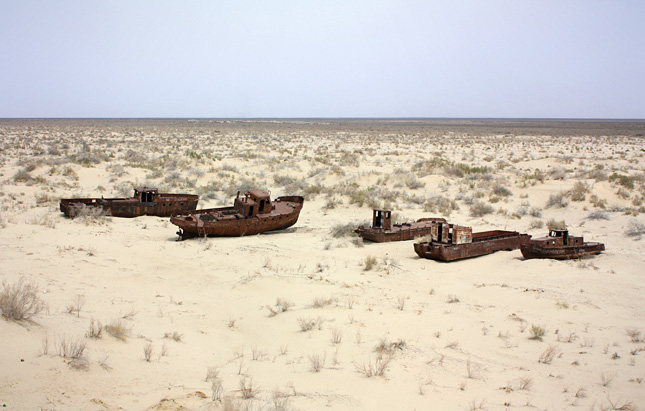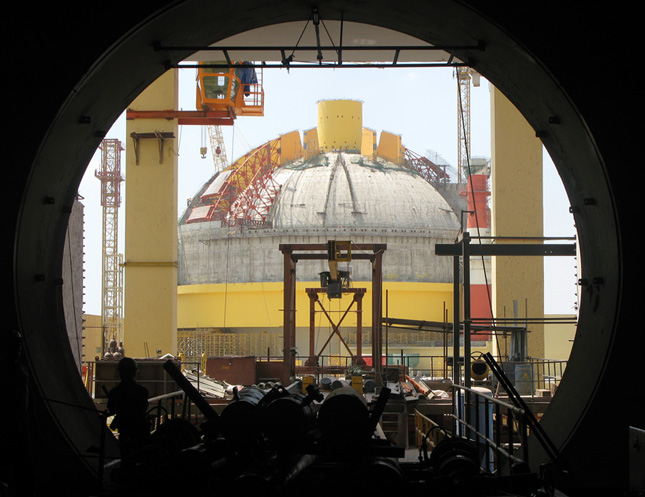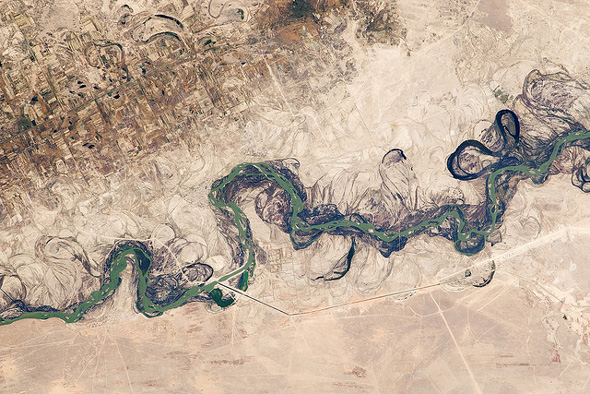-
Silently, Quickly, and Completely: The World’s Lakes in Peril
›September 28, 2016 // By Cara Thuringer
When Lake Poopó, Bolivia’s second-largest lake, dried up last December, an entire community lost their way of life and the scientific community cast their eyes to the map asking, where next? They didn’t have to look far. According to a report prepared by the World Lake Vision Committee, a collaboration between the International Lake Committee Foundation, the Shiga Prefectural Government of Japan, and the United Nations Environment Program, there are very few major lake systems that are not experiencing decreasing water quality, volume, biodiversity, or some combination of the three.
-
Christine Parthemore, Center for Climate and Security
How Are Climate Plans Affecting Nuclear Security?
›May 5, 2016 // By Wilson Center Staff
Today, new nations are pursuing civilian but dual-use nuclear capabilities, the threat of non-state actors seeking nuclear materials may be growing, and countries continue to debate proper ways to enhance nuclear safety, security, and nonproliferation systems to keep up with the pace of change. At the same time, governments worldwide are having difficulty managing the effects of a rapidly changing climate, such as more damaging natural disasters and resource stress. The relationships among nuclear, climate, and security risks are growing more complex and interconnected, and these issues are likely to begin converging in new ways. By early 2016, it has become clear that the international community must take a fresh look at the ways in which they are likely to connect and potentially collide in the years ahead, and foster deeper dialogue on what should be done about it.
-
Eelke Kraak, ChinaDialogue
Central Asia’s Dam Debacle
›March 13, 2012 // By Wilson Center StaffThe original version of this article, by Eelke Kraak, appeared on ChinaDialogue.
The Toktogul Dam in Kyrgyzstan is an imposing structure. The dam guards the largest and only multi-annual water reservoir in central Asia. The cascade of five hydroelectric stations downstream produces 90 percent of Kyrgyzstan’s power. Cotton fields thousands of kilometers away in Kazakhstan and Uzbekistan depend on the release of water from this dam.
The Toktogul is literally and figuratively the “valve” of the Syr Darya River. But by relying on large-scale engineering projects to control the river, these countries have ignored the fundamentally political nature of water management.
The significance of the Toktogul dam goes beyond its economic benefits. It was the center piece of the Soviet Union’s efforts to conquer nature in its drive to modernize central Asia. When it became fully operational in the late 1980s, the project to control the region’s rivers seemed complete.
But the costs have been high. The Aral Sea, the terminal lake of the main sources of water in central Asia, the Syr Darya and Amu Darya rivers, has shrunk to almost nothing. Many areas surrounding what is left of the lake are heavily polluted. Moreover, the now independent Syr Darya riparian countries – Kyrgyzstan, Uzbekistan, Tajikistan and Kazakhstan – disagree on how the Toktogul should be operated.
Continue reading on ChinaDialogue.
Syr Darya River Floodplain, Kazakhstan, courtesy of NASA and the Center for Philosophy of Sciences of the University of Lisbon.
Showing posts from category Kazakhstan.






